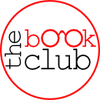 Traditional publishers prefer to print a thousand copies of a book written by an established author rather than 100 copies of books written by ten new authors. It makes financial sense to bet on a winning horse. Changes in the publishing landscape have allowed new authors to shun traditional publishing altogether and dive straight into self-publishing via Amazon or other avenues. The problem is of quality. Traditional publishing houses are meticulous about the plot, the structure, character arc, dialogue, copy-editing, and cover design, and often have a budget for advertising. For a new author who is considering self-publishing, there are myriad resources to get professional help from content to copy editing, cover design to formatting and advertising. When working on a small budget with the likelihood of a bestseller remote at best, new authors find it difficult to get it all done professionally and still come ahead. We’ve all heard of best-selling self-published authors making six figure profits and procuring book and movie deals. But for most authors, it’s a pipe dream. But new authors should be hopeful. Think of your first book as a business venture. No business makes profits on day one. It takes an initial capital investment, advertising, and discounts to attract future paying customers (fan base) before a business can take off. For fiction authors, I’m told it begins to take off only after the first few books are ready to go. So rather than wait a year between books, it’s better to write and polish up two or three, and publish them within a few months of each other. Give one out for free, or give discount packages. Once the word it out there, with 20 or more 5 star reviews, there’s a chance it is discovered. For those of us writing for the fun of it, self-publishing is a great option. I’m considering it for my next novel Shadowed Promise. Would you consider self-publishing?  I’m sharing a recent article by Eric Barker in Time Magazine about Writing Tips from Harvards’ Cognitive Scientist and Linguist Steven Pinker: In short: 1. Use easy words. Don't try to outsmart your reader. 2. Assume the reader doesn’t know your world, so use descriptive words. 3. Don’t beat about the bush. Be direct. 4. Stick to the format of your genre and the rules of grammar most of the time. It will make your exceptions exceptional. 5. Read a lot in your genre. 6. Revise until you eliminate every unnecessary word, then revise some more. To read the full article, click the link below: http://time.com/3584611/write-better-tips-from-harvard/?xid=time_socialflow_facebook |
Want to learn how to write fiction? Check out these helpful books.
Archives
September 2022
Categories |



 RSS Feed
RSS Feed